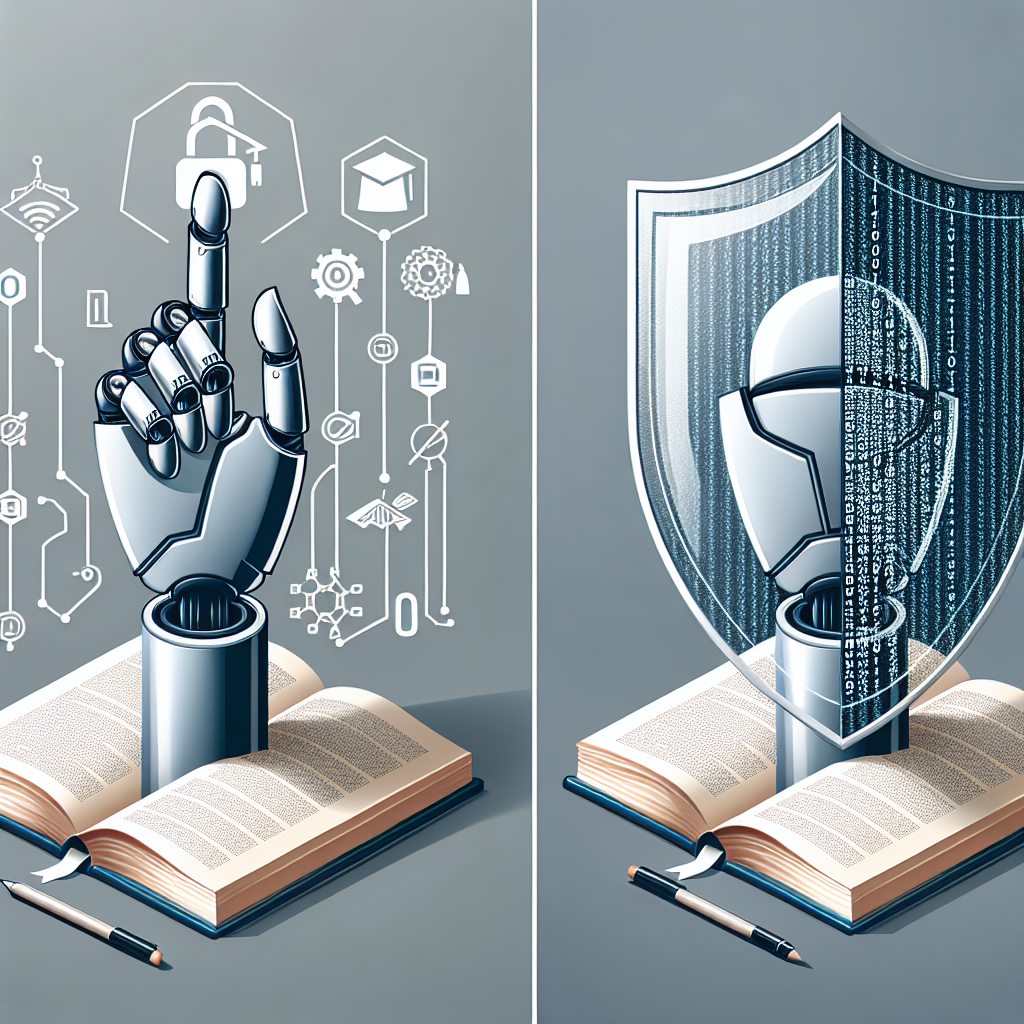Artificial intelligence (AI) algorithms have become increasingly prevalent in educational settings, offering a wide range of benefits such as personalized learning experiences, adaptive testing, and improved student outcomes. However, the use of AI algorithms in education also raises significant concerns about student privacy and data security. As schools and educational institutions continue to adopt AI technologies, it is important to understand the potential risks and implications of these algorithms compromising student privacy.
One of the primary risks of AI algorithms compromising student privacy is the collection and storage of sensitive personal data. AI algorithms in education often rely on large amounts of data, including student demographics, academic performance, behavior patterns, and even biometric information. This data can be used to create detailed profiles of individual students, which may include information about their learning styles, preferences, and even potential vulnerabilities. While this data can be valuable for improving educational outcomes, it also raises concerns about the security and privacy of student information.
Another risk of AI algorithms compromising student privacy is the potential for data breaches and unauthorized access. Educational institutions are increasingly becoming targets for cyber attacks, as hackers seek to exploit vulnerabilities in their systems to gain access to sensitive student data. AI algorithms that store and process large amounts of student information can be particularly attractive targets for cyber criminals, who may use this data for identity theft, fraud, or other malicious purposes. In addition, the use of AI algorithms in education raises concerns about the potential for data misuse, such as profiling students based on their personal characteristics or sharing their information with third parties without their consent.
Furthermore, the use of AI algorithms in educational settings can also raise concerns about bias and discrimination. AI algorithms are trained on large datasets, which may contain biases and prejudices that can inadvertently impact their decision-making processes. For example, an AI algorithm that is used to assess student performance may be biased against certain demographic groups, leading to unfair outcomes for students who belong to those groups. In addition, the use of AI algorithms in education may also raise concerns about transparency and accountability, as it can be difficult to understand how these algorithms make decisions and whether they are fair and unbiased.
In light of these risks, it is important for educational institutions to take steps to protect student privacy and data security when using AI algorithms. This includes implementing robust data protection measures, such as encryption, access controls, and regular security audits, to safeguard student information from unauthorized access. Educational institutions should also be transparent about the use of AI algorithms in education and provide students and their families with clear information about how their data is being collected, stored, and used.
Additionally, educational institutions should also be mindful of the ethical implications of using AI algorithms in education. This includes ensuring that AI algorithms are used in a fair and responsible manner, and that they do not perpetuate biases or discrimination against certain groups of students. Educational institutions should also consider the potential impact of AI algorithms on student autonomy and agency, and ensure that students have control over their own data and are able to make informed decisions about how it is used.
In conclusion, while AI algorithms offer a wide range of benefits for education, they also raise significant concerns about student privacy and data security. Educational institutions must take proactive steps to protect student information and ensure that AI algorithms are used in a fair and responsible manner. By addressing these risks and concerns, educational institutions can harness the power of AI algorithms to improve student outcomes while safeguarding student privacy and data security.
FAQs:
Q: How do AI algorithms compromise student privacy in educational settings?
A: AI algorithms in education collect and store sensitive personal data, which can be vulnerable to data breaches and unauthorized access. These algorithms may also contain biases and prejudices that can impact decision-making processes, leading to unfair outcomes for students.
Q: What steps can educational institutions take to protect student privacy when using AI algorithms?
A: Educational institutions can implement robust data protection measures, such as encryption, access controls, and regular security audits, to safeguard student information from unauthorized access. They should also be transparent about the use of AI algorithms in education and provide clear information to students and their families about how their data is being collected, stored, and used.
Q: How can AI algorithms impact student autonomy and agency in educational settings?
A: AI algorithms may limit student autonomy and agency by making decisions on their behalf without their input or consent. Educational institutions should ensure that students have control over their own data and are able to make informed decisions about how it is used.
Q: What ethical considerations should educational institutions keep in mind when using AI algorithms in education?
A: Educational institutions should consider the potential impact of AI algorithms on student autonomy, fairness, and transparency. They should ensure that AI algorithms are used in a fair and responsible manner, and that they do not perpetuate biases or discrimination against certain groups of students.

